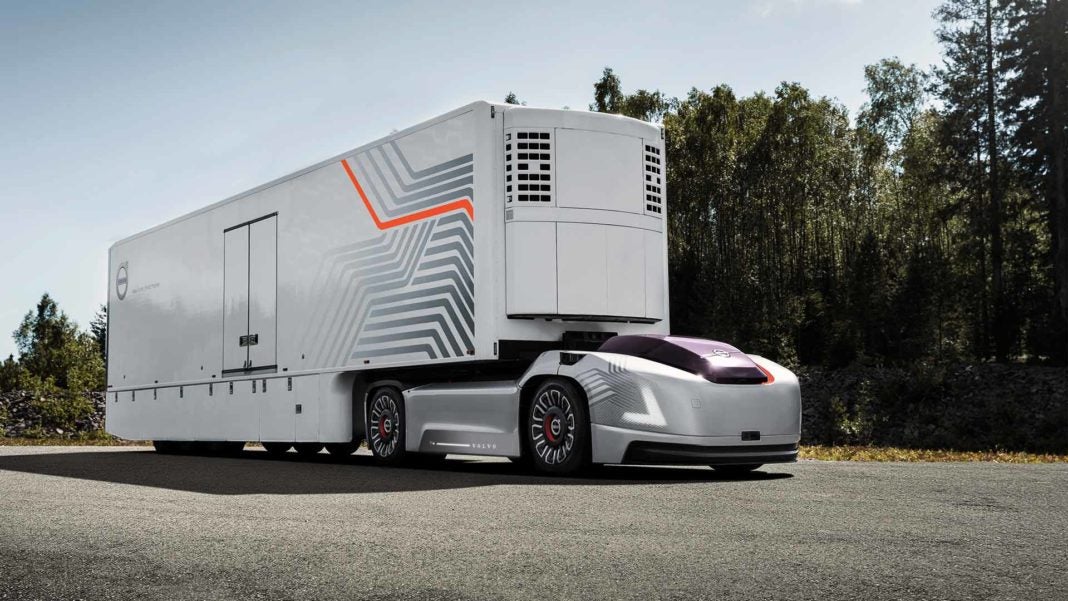Autonomous trucking technology has gained momentum in recent years. These vehicles operate without human intervention, using advanced sensors and AI to navigate roads and transport goods. This innovation has the potential to revolutionize logistics and shape the future of freight delivery.
With increased efficiency, reduced costs, improved safety, and environmental benefits, autonomous trucking is poised to transform the transportation industry. While challenges remain, businesses should prepare for this inevitable shift in logistics operations.
Overview of the benefits and challenges of autonomous trucking
Autonomous trucking offers compelling benefits, including enhanced safety by reducing human error and accidents. It can also improve operational efficiency through optimized routes and reduced fuel consumption. Self-driving trucks eliminate the need for driver breaks, enabling faster delivery times and increased productivity.
However, challenges exist. The regulatory framework for autonomous trucking is uncertain, with governments yet to establish guidelines for public road use. Public perception and acceptance of self-driving trucks also pose a challenge, requiring education campaigns to address concerns about reliability and safety.
Understanding the Potential Growth of the Industry
The autonomous trucking industry is poised for significant growth due to increasing demand for efficient freight transportation solutions and advancements in technology. Market trends predict that the global autonomous truck market will reach a valuation of billions by 2027, with a remarkable compound annual growth rate.
This growth can be attributed to factors such as evolving logistics needs and the search for cost-effective, reliable, and sustainable transportation options.
The industry’s growth is driven by various factors, including a shortage of truck drivers, rising labor costs, and the need for enhanced supply chain efficiency. Additionally, increased urbanization and e-commerce activities have led to greater demand for transportation services.
Autonomous trucking companies offer a more efficient and reliable solution compared to traditional human-driven trucks.
To meet these demands effectively, autonomous trucking relies on advancements in technology such as artificial intelligence (AI), machine learning algorithms, and sensor technologies. These developments enable safe navigation and real-time data analysis, ensuring optimized routing systems and improved delivery times.
In summary, the potential growth of the autonomous trucking industry stems from its ability to address challenges faced by traditional logistics systems. With increasing demand for efficient freight transportation solutions and advancements in technology driving its expansion, this sector presents an attractive investment opportunity.
Highlighting Key Players in the Autonomous Trucking Sector
In the autonomous trucking sector, there are key players driving innovation and shaping the future of transportation. Tesla has made significant strides with their Autopilot feature and ambitious plans to develop electric semi-trucks with autonomous capabilities.
Waymo, a subsidiary of Alphabet Inc., brings extensive experience in self-driving technology and has ventured into freight delivery through partnerships. Einride focuses on developing fully electric and autonomous trucks for efficient freight transportation. These companies are revolutionizing the industry and redefining how goods are transported.
| Company | Focus |
|---|---|
| Tesla | Electric semi-trucks with autonomous capabilities |
| Waymo (Alphabet Inc.) | Autonomous passenger vehicles and freight delivery partnerships |
| Einride | Fully electric and autonomous trucks for efficient freight transportation |
Note: The table above provides a quick overview of the companies mentioned in this section and their respective focuses.
Examining Historical Performance of Autonomous Trucking Stocks
To assess investment opportunities in the autonomous trucking sector, analyzing historical stock performance is crucial. Stocks may fluctuate in response to regulatory developments, technological advancements, or major partnerships. For example, regulatory approvals for autonomous truck testing can positively impact a company’s stock.
Analyzing price fluctuations and patterns over time, along with factors like revenue growth and market share, helps identify trends and make informed investment decisions. Thorough research is necessary as stock prices are influenced by various factors.
Understanding historical performance provides insights into a company’s financial health and future prospects in the autonomous trucking industry.
Factors Influencing Stock Performance
Government regulations and technological advancements are key factors that influence the performance of autonomous trucking stocks. Changes in regulations regarding safety standards, licensing requirements, and road infrastructure development can significantly impact stock performance.
Investors should also monitor companies that demonstrate innovation by developing cutting-edge technologies or securing patents related to autonomous driving systems. Understanding these factors is crucial for investors looking to navigate the autonomous trucking sector successfully.
| Factors Influencing Stock Performance |
|---|
| 1. Government regulations and policies |
| 2. Technological advancements and innovation |
Investors must assess these external influences to make informed investment decisions within this rapidly evolving industry.
Assessing Risks Associated with Investing in Autonomous Trucking Stocks
Investing in autonomous trucking stocks carries risks that should be considered. Regulatory uncertainties and safety concerns surrounding autonomous vehicles can hinder company growth and impact stock performance.
Intense competition within the industry requires careful evaluation of a company’s competitive advantages, differentiation strategies, and market positioning. Economic factors like fuel prices and consumer demand also influence the success of these stocks.
To make informed investment decisions, it is essential to monitor these risks and stay informed about market trends.
Highlighting Potential Rewards for Investors in this Sector
Investing in autonomous trucking stocks can be rewarding for those who make well-informed decisions based on thorough research. Despite the risks involved, there are compelling reasons to consider this sector.
Projected revenue growth and market expansion opportunities make investing in autonomous trucking stocks appealing. As the demand for efficient freight transportation solutions increases, companies in this space have significant potential for growth.
By developing innovative solutions that address evolving logistics challenges, they can seize market opportunities.
Moreover, the long-term profitability outlook is positive as technology advances and autonomous trucks become more widely adopted. Companies operating in this industry have the potential to generate substantial profits by offering cost-effective and efficient transportation options.
Technological advancements further drive innovation within the autonomous trucking sector. Improvements in self-driving technology, safety features, and fuel efficiency enhance both current operations and future prospects.
Investors should also consider the potential for disruption and competitive advantage. Early adoption of autonomous trucking technology positions companies as leaders in transforming the industry, potentially disrupting traditional freight transportation methods.
[lyte id=’78cuIj9AEuA’]






